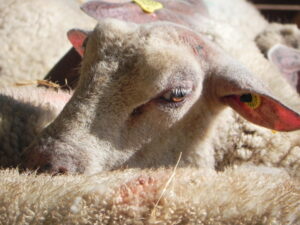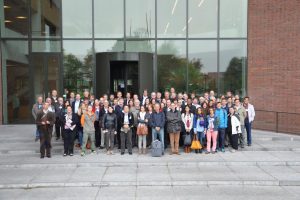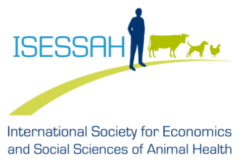The International Society for Economics and Social Sciences of Animal Health
The International Society for Economics and Social Sciences of Animal Health (ISESSAH) was formed in 2017 at the final meeting of the Networking to enhance the use of economics in animal health education, research and policy-making in Europe and beyond (NEAT).

ISESSAH aims to improve animal health and welfare policies, programme and projects through more nuanced use of concepts and tools available in economics and social science disciplines. In the process it will provide opportunities for animal health professionals globally to achieve wider societal benefits from animals in society.
One of the main activity of ISESSAH is the organization of its annual international conference. Regional conferences are also welcome.
Status and organisation
The official society (also named foundation) is established on 23rd May 2018 in the Netherland. It regulated by Dutch laws and the constitution has been kept as simple as possible. The original constitution can be found here.
By laws have been defined so as to organize the daily’s activities of the society and to define the running rules. By laws dated on December 7th 2020 can be downlaod here.
Board members
The Board of ISESSAH is presently composed of the following persons:
- Henk Hogeveen, president
- Jonathan Rushton, past president
- Wilma Steeneveld, secretary
- Didier Raboisson, past secretary
- Dustin Pendell, treasurer
- Bouda Vosough Ahmadi , member and special editions
- Ahmed Ferchiou, member and public relations
- Katja Schulz, member
- Dikky Indrawan, member
- Erwin Wauters, member
- George Gunn, member
- Jada M. Thompson, member
Rules on board composition are described in by laws
History : Isessah and NEAT
The initiative to establish the International Society of Economics and Social Sciences for Animal Health (ISESSAH) is taken during the last meeting of the Networking to enhance the use of economics in animal health education, research and policy-making in Europe and beyond (NEAT) network.

The NEAT’s consortium aimed to design and develop educational materials and methods, disseminate them to partners and end-users, and evaluate their wider impacts on society. NEAT stands for “Networking to enhance the use of economics in animal health education, research and policy making in Europe and beyond” and was a 3-year project co-funded by the Lifelong Learning Programme of the European Union.
All materials developed by NEAT are still available on-line.
